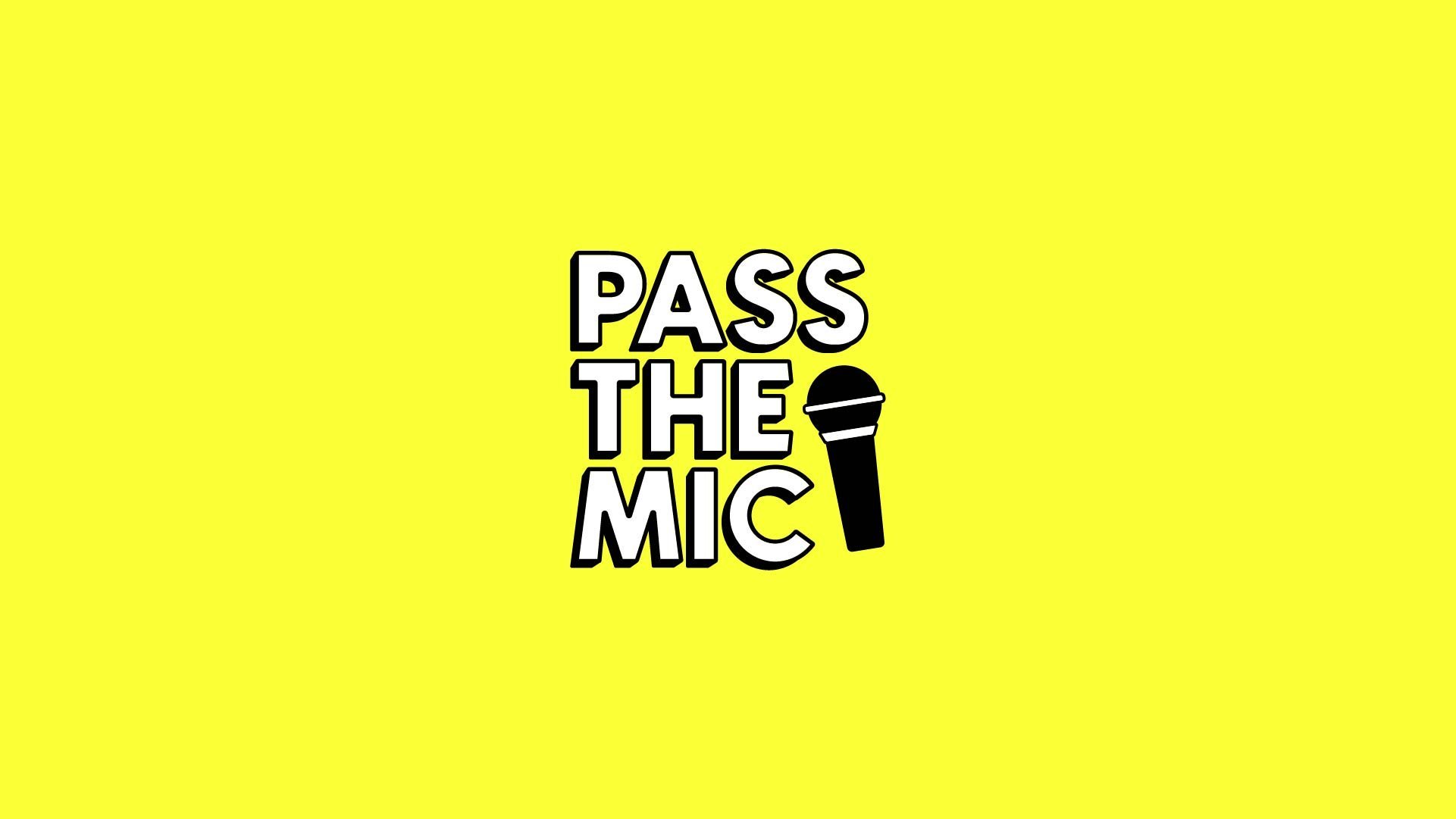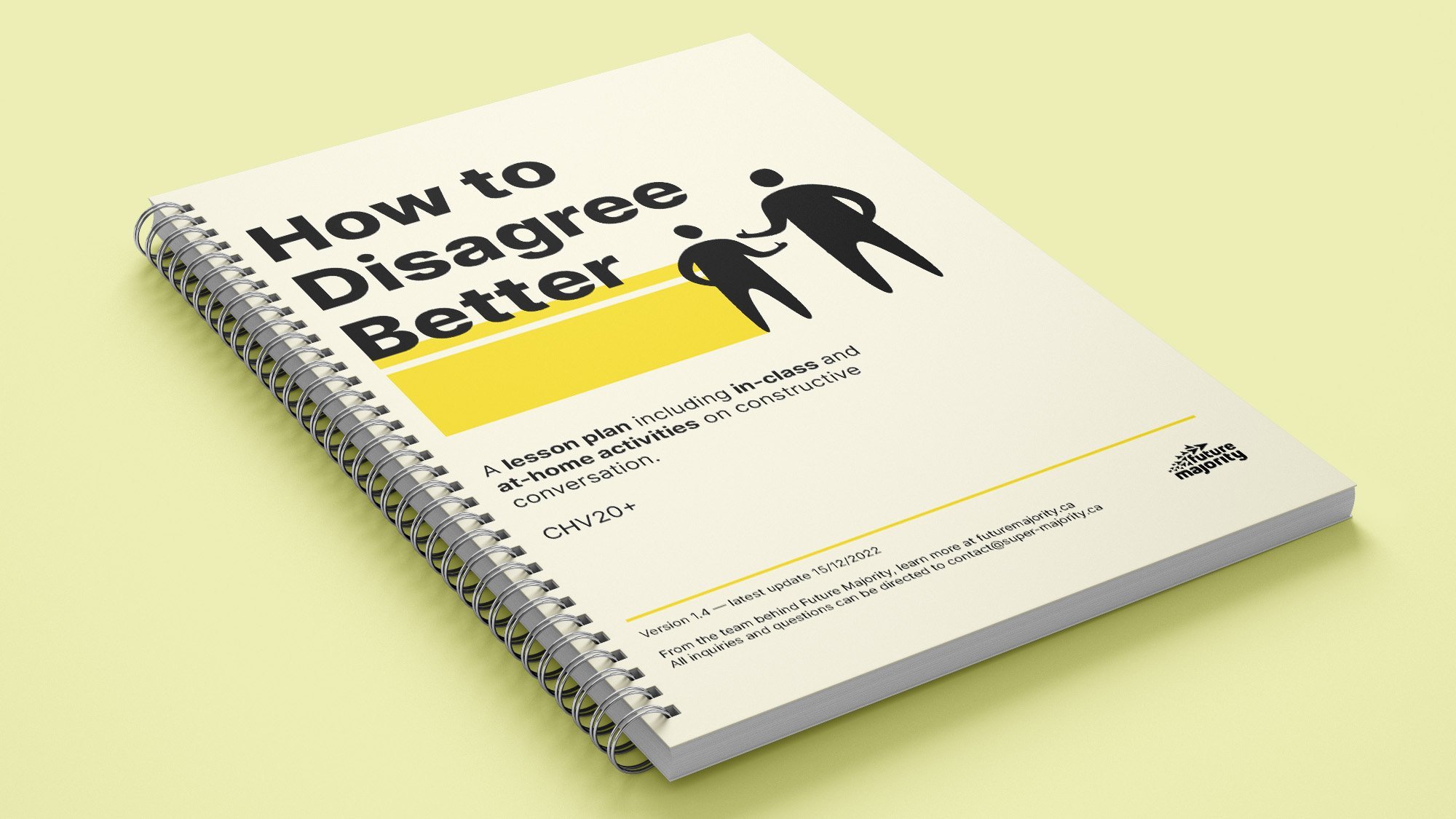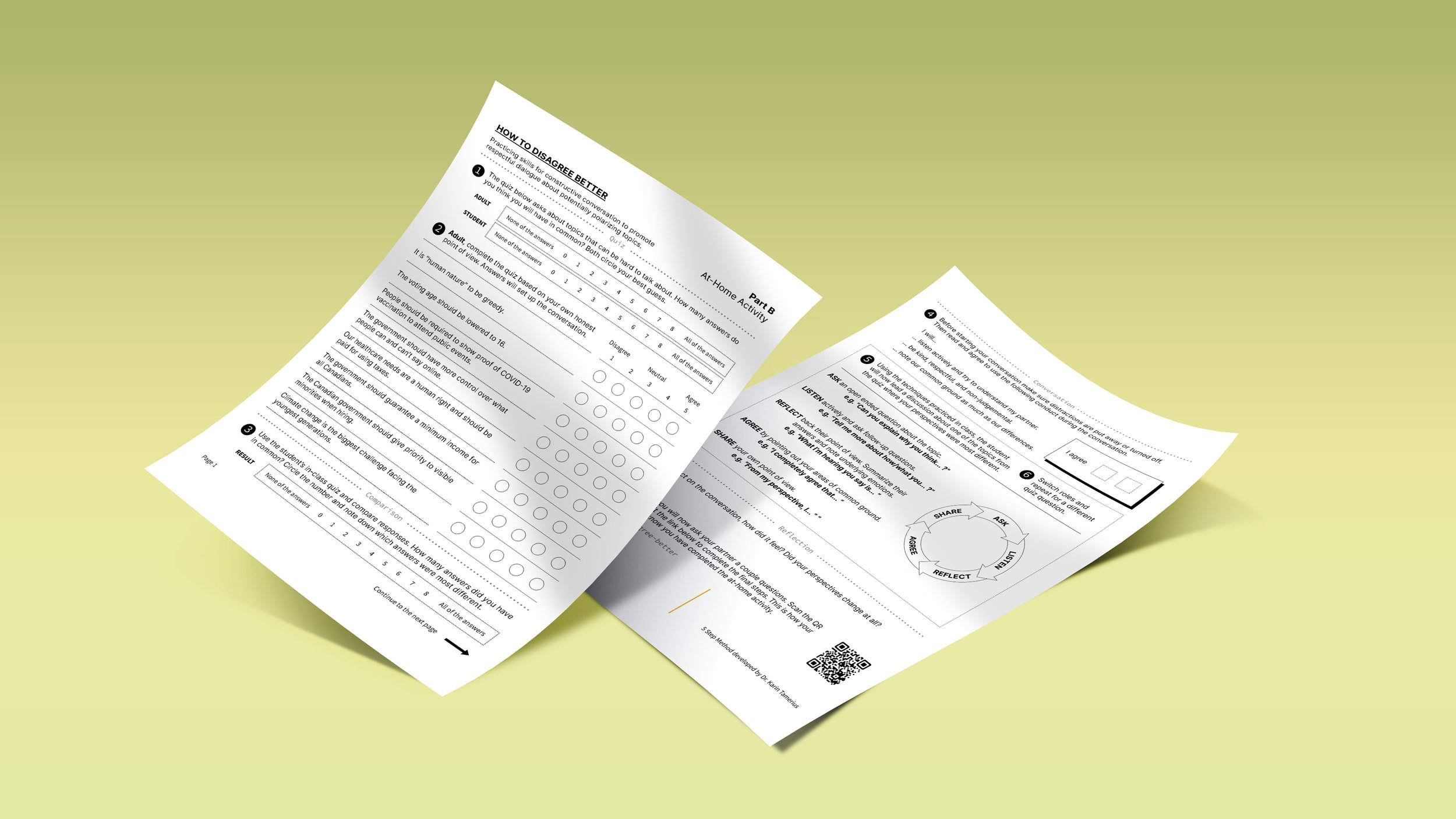
Pass the Mic
A student program of guided intergenerational conversations designed to create a shared vision of Canada’s future.
Prototyping
Role
Design Lead & Manager
Company
Supermajority
Year
2022
The Problem
The mounting pressures of climate change, automation of work, disinformation, and advanced disruptive technology pose an existential threat to democracy. The youngest generation feels these existential challenges the most and is increasingly disenfranchised and disillusioned by the political process. They want to be a part of the solution but the generational rift is wider than ever and social media has polarized us to the extent that the most important topics feel impossible to discuss.
The Hypothesis
Young people can be mobilized en masse and break through the barriers of polarization using a curriculum of guided conversation prompts and activities and create intergenerational consensus around a shared vision of Canada’s future.
The MVP Process
We created a program of guided conversations for young people to have with their parents at home using a call to action; “adults have all the power to create the future - let’s get on the same page.” Students signed up via Meta ads and 35% of participants completed the activity. The conversation guides were built using the Typeform, a well designed online survey platform. Students were further incentivized by offering hours towards their volunteer service hours.
In the introductory activity, participants graded a selection of prompts according to how severe of a challenge they anticipate them to be in the decades to come. For example, they may rate ‘Climate Change’ as a 9 out of 10, and ‘Ability to Buy a Home’ as an 8 out of 10. When compared, these grades were used to inspire constructive conversation exercises, celebrating where participants agreed and mediating where they disagree. Participants could pursue a self-guided curriculum on a number of topics and discussion guides that included fun, educational videos.
Students and parents reported feeling positive feelings about the conversations. Students remarked often that it was the first time they were able to have a “serious” conversation with their parents and that it made them feel empowered and improved their relationships.
We developed a gamified system for students to connect with other leaders and complete organizing challenges. The map-like interface helped them understand their contribution in the context of the national effort.
This work is highly influenced by peer-reviewed studies on the power of intergenerational conversations (between child and parent) in climate change advocacy (here and here) and on the practice of “deep canvassing” which indicates that empathetic, open ended conversations can be more persuasive that traditional arguments (here).
In order to reach a wider scale, we launched a learning activity for civics teachers in Ontario schools. The activity matched curriculum requirements and gave teachers valuable frameworks for mediating conflict and polarization through open-ended conversation.
Core Features
Constructive conversation guides.
A curriculum.
Volunteer hours.
A ladder of engagement for students.
A lesson plan and activity for Civics teachers as a mechanism for optimizing scale.





